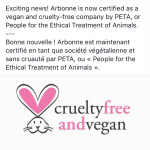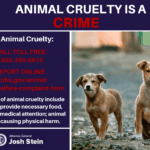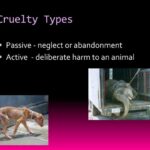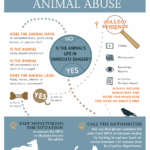In a world where consumer choices resonate with ethical implications, the pursuit of cruelty-free products has become an imperative mantra for conscientious shoppers. As the year 2025 unfolds, the beauty industry continues to grapple with its legacy of animal testing, prompting an inquiry into the practices of brands celebrated for their commitments to humane principles. Among these brands is Arbonne, a leading contender in the realm of skincare and cosmetics. But the question remains: Is Arbonne truly animal cruelty-free in 2025? Let us embark on a journey to unveil the intricacies of the company’s policies, practices, and the broader implications for animal welfare.
First, it is essential to dissect the term ‘cruelty-free.’ Typically, this phrase signifies a brand’s steadfast commitment to abstaining from animal testing throughout every stage of product development. However, the labyrinthine world of cosmetic testing regimes can obscure the clear definition of this term. A multitude of companies may claim adherence to cruelty-free standards, yet the nuances of their operations may paint disparate pictures. Arbonne asserts its dedication to ethical practices; however, the landscape of animal testing laws and corporate policies can shift like sand beneath our feet.
Arbonne’s origins are entwined with holistic wellness narratives, birthed in 1980 with a vision of creating products that are both efficacious and ethically responsible. Their commitment to vegan formulations—free from animal-derived ingredients—reinforces their stand against animal cruelty. Yet, as we delve deeper into their practices in 2025, a multifaceted investigation reveals a more complex tapestry woven from both commendable and controversial threads.
Examining Arbonne’s global reach, one encounters the labyrinth of international regulations governing animal testing. While it is true that many countries are moving steadily towards prohibiting such practices—deeming them archaic and unnecessary—others, notably China, maintain stringent requirements where animal testing remains mandatory for imported cosmetics. In navigating this dichotomy, it becomes imperative to scrutinize where, and how, Arbonne operates. In 2025, while the brand claims to be cruelty-free, the question remains whether all markets align with its ethical stance.
To assess Arbonne’s actual commitment to animal welfare, one must engage in a detailed exploration of their policy statements versus the practices employed. Various organizations confer certification on cosmetics brands that meet stringent cruelty-free criteria, such as Leaping Bunny and PETA. As of 2025, Arbonne continues to carry the esteemed Leaping Bunny certification, a granted title that mandates complete transparency and adherence to animal testing prohibitions. However, confluence of policy and practice is paramount; mere certification does not shield a company from potential lapses in ethical conduct across various domains.
Moreover, one must consider the ramifications of supply chain practices. The ingredients that bubble forth in a product’s formula are oftentimes sourced from a myriad of suppliers, each with its own methods of procurement and testing protocols. A superficial examination of Arbonne might reveal an impressive array of botanical extracts and vitamins nestled within their offerings, yet awareness of potential animal testing by third-party suppliers can muddy the waters. As a consumer, challenging oneself to inquire about these aspects becomes a crucial step in discerning the true depth of their cruelty-free claims.
In the heart of the conversation lies the intersection of ethics, market demand, and consumer education. As society increasingly demands transparency, brands like Arbonne must adapt and evolve. In 2025, cruelty-free status is no longer a simple badge of honor but an expectation buoyed by an informed populace. Consumers armed with knowledge wield significant influence; thus, the narrative surrounding brands like Arbonne continues to be written not just by their policies, but also by consumer sentiment and awareness—each word a drop in the burgeoning ocean of ethical consumption.
As we navigate this terrain, understanding the significance of cruelty-free products surpasses mere aesthetics. It metamorphoses into a statement of values—a belief in the sanctity of life that encompasses all beings. The beauty products we choose to embrace should echo our commitment to protect those who cannot advocate for themselves. The heart of animal activism beats not only for the beasts but also paves pathways to ethical practices that promote a more compassionate world.
In summation, the question of whether Arbonne stands as a beacon of cruelty-free promise in 2025 embodies a layered discourse. While the brand espouses commendable values rooted in the tenets of veganism and cruelty-free certification, a collective effort must ensure these principles are woven into every fiber of their operations. As consumers journey through the beauty aisle, contemplating questions that linger like whispers in the air, awareness and vigilance remain paramount. The power to impact the fate of countless animals lies in our hands. Empowered by informed choices, we can catalyze change, urging brands like Arbonne to fortify their resolve and safeguard a future where beauty unravels without cruelty. Only then will we emerge victorious in our quest for an ethical ethos in cosmetics, ensuring every shimmer of lipstick and dollop of cream is accompanied by a heart that beats free from harm.






